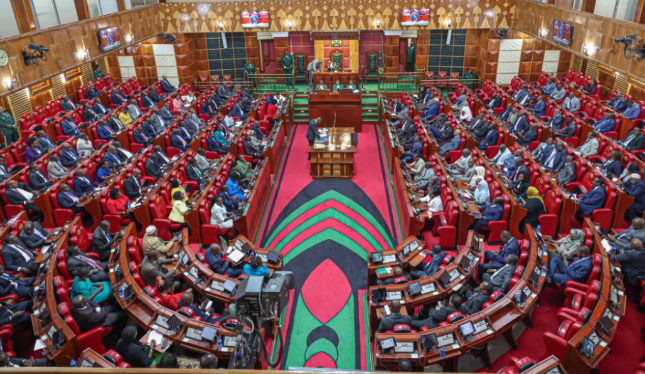Members of the National Assembly have approved Kithure Kindiki as Deputy President, following his nomination by President William Ruto on Friday. A total of 236 MPs voted in favor of Kindiki’s confirmation, with no abstentions or opposing votes.
“The nomination is herewith declared passed by the House, and the Speaker will transmit the result to the president. The Speaker will also sign a gazette notice to this effect,” announced Speaker Moses Wetang’ula.
With this approval, President William Ruto will appoint Kindiki as his principal assistant, who will then await a date for his swearing-in. Kindiki currently serves as the Interior and National Administration Cabinet Secretary, and his name was submitted to the National Assembly on Friday.
Wetang’ula conveyed, “I have received a message from the president on the nomination of Professor Kithure Kindiki to fill the vacancy in the office of the Deputy President of the Republic of Kenya.” According to the Constitution, once the president submits a nomination to the National Assembly, MPs are required to vote to either reject or endorse the nomination, and there is no requirement for a two-thirds majority.
Earlier, some MPs raised questions about whether the House could approve Kindiki’s nomination on the same day. However, Speaker Wetang’ula confirmed that voting would take place on Friday, as it aligns with the constitutional timelines.
“Nomination and voting of Kithure Kindiki on the same day is within the constitutional timeline provided for in the constitution,” he said.
On subjecting the nomination of the deputy president to public participation, the Speaker said the exercise was not applicable in this particular matter.
He explained that elective positions in Parliament, including those of Speaker, Deputy Speaker, and East African Legislative Assembly members, are not subjected to public participation.
“The practice of the House in these instances is that the House has always proceeded directly to vote without public participation. To this end, as far as Article 149(1) of the Constitution is concerned, the House votes upon receiving the nomination, and the requirement for public participation does not apply.
“To the extent that Article 149(1) of the constitution contemplates the House to vote upon receiving the nomination, the requirement of public participation is not applicable in this case,” Wetang’ula added.



